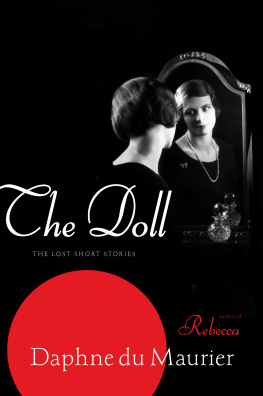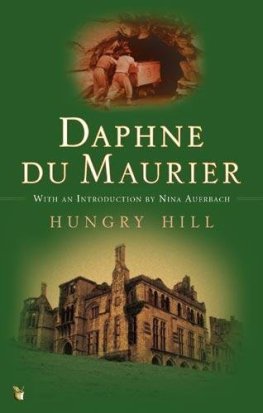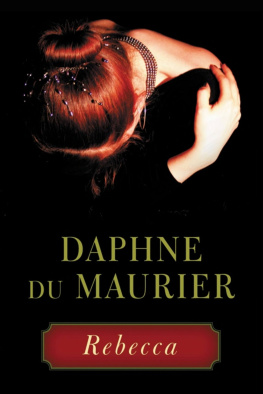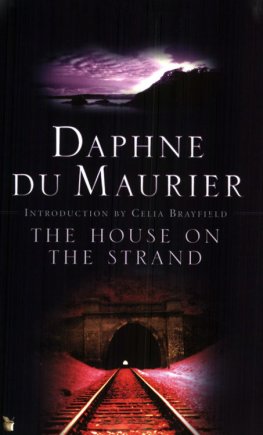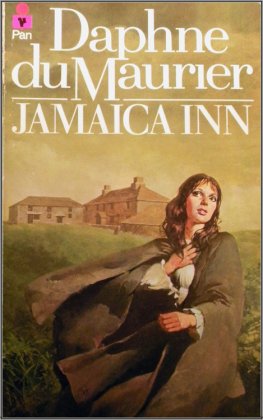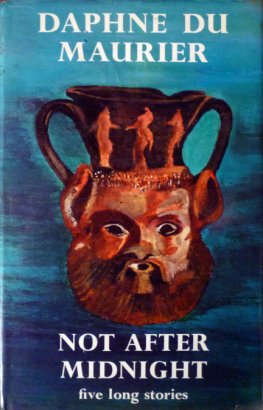The Doll
THE LOST SHORT STORIES
Daphne du Maurier

Contents
N early a hundred miles west of the Scillies, far from the main track of ships, lies the small, rocky island of St Hildas. Only a few miles square, it is a barren, rugged place, with great jagged cliffs that run steep into deep water. The harbour is hardly more than a creek, and the entrance like a black hole cut out of the rock. The island rises out of the sea a queer, misshapen crag, splendid in its desolation, with a grey face lifted to the four winds. It might have been thrown up from the depths of the Atlantic in a moment of great unrest, and set there, a small defiant piece of land, to withstand forever the anger of the sea. Over a century ago few knew of its existence, and the many sailors who saw its black outline on the horizon imagined it to be little more than a solitary rock, standing like a sentinel in mid-ocean.
The population of St Hildas has never exceeded seventy, and the people are descendants of the original settlers from the Scillies and Western Ireland. Their only means of livelihood used to be the catching of fish and the cultivation of the soil. Today things are greatly changed, owing to the monthly call of a coastal steamer, and the installation of wireless. But in the middle half of the last century, years would sometimes pass without communication with the mainland, and the people had degenerated into quiet, listless folk, the inevitable result of intermarriage. There were no books then, no papers, and even the small chapel that had been built by the original settlers had fallen into disuse. Year in, year out, the life remained unchanged, with never a new face or a fresh thought to break the monotony of the days. Sometimes, on the horizon, the faint glimmer of a sail would be seen, and the people would gaze with wonder in their eyes, but slowly the sail would become a far-off speck, and the unknown ship pass into oblivion.
They were peaceable folk, these natives of St Hildas, born to a quiet, untroubled existence as monotonous as the waves that broke against their shores. They knew nothing of the world beyond the island, they saw no more momentous happenings than birth and death and the changes of the seasons. Their lives were untouched by great emotions, by great sorrows; their desires had never been lit, but lay imprisoned within their souls. They lived blindly, happily, like children, content to grope in the dark and never to search for the something that lay beyond their darkness. Some inner sense warned them that in their ignorance dwelt security, a happiness that was never wild, never triumphant, but peaceful and silent. They walked with their eyes to the ground; they had become weary of looking upon a sea where no ship came, of lifting their faces to a sky that seldom changed.
Summer and winter passed, children grew into men and women there was no more in life than these things. Far away lay the other lands dwelt in by strange people, where the life was said to be hard and men had to fight for their existence. Sometimes an islander would sail away, shaping his course for the mainland and promising to return with news of the rest of the world. Perhaps he was drowned, or picked up by some passing ship; no one could say, for he never came back. No one who left the island returned. Even the few ships that so rarely visited St Hildas came once only, and passed not again.
It was almost as if there were no such place, as if the island were a dream, a phantom creation of a sailors brain, something rising out of the sea at midnight as a challenge to reality, then vanishing in surf and mist to be forgotten, to be half-consciously remembered years later, flickering for a bewildered second in a dusty brain as a dead thought. Yet to the people of St Hildas the island was reality, the ships that came and went were their phantoms.
There was only the island. Beyond it lay the ghostly, the intangible; the truth was in the seared rock, in the touch of the soil, in the sound of the waves breaking against the cliffs. This was the belief of the humble fisherfolk, and they cast their nets during the day, and gossiped over the harbour wall at evening with never a thought of the lands across the sea. At dawn the men set off to fish, and when their nets were filled they would return to the island and climb the steep path that led to the fields, to work with stolid patience at the soil.
The group of cottages was clustered together at the waters edge, with seldom more than two rooms to contain an entire family. Here the women bent over their fires, cooked, and darned their mens clothes, talking peacefully from dawn till dusk.
One cottage stood apart from the others, built high on the cliff and looking down upon the creek. Today only the site remains, and instead of a cottage stands the ugly wireless station; but sixty years ago this was the home of the chief fisherman of St Hildas. Here Guthrie dwelt with his wife Jane, living as children, content in each other, unmindful of desire, ignorant of distress.
Guthrie stood on the cliffs at twilight, watching the sea. Below him in the harbour the fishing boats rocked, moored for the night. The men gossiped over the harbour wall and the sound of their voices rose to him, mingled with the thin cries of children. The little quay was slippery with spray and blood and the scales of dead fish. The smoke curled from the chimneys, a thin blue column, twisting and turning in the air. From the door of his cottage came Jane, her hands to her eyes, searching for him. Come away down! she called. The suppers been ready an hour since. Yell find un spoilt, as likely as not. He waved his arm and turned, pausing to glance at the horizon for the last time. The sky was speckled with white loose-flocked clouds, and the sea, changing from the oily smoothness of the day, was running past the harbour in a low swell. Already there was a wash upon the rocks, at the eastward entrance. A soft humming sound came to his ears, as the sea gathered force, and a cool breeze played with his hair. He ran down the hill to the village, and cried to the fishermen who were standing by the wall.
Tis the East Wind startin, he told them. Cant ye see the sky like a fishs tail, and the big lumpin sea awash on the rocks? Before midnight therell be a gale to blow your heads off, and the sea angrier than the devil himself. Look to the boats.
The harbour was sheltered from the wind, yet the vessels were moored securely fore and aft to prevent the possibility of their breaking adrift.
After he had seen that everything was safe for the night, Guthrie climbed the path to his cottage on the cliff. He ate his supper in silence. He felt restless and excited; the quiet atmosphere of the cottage seemed to oppress him. He tried to occupy himself in mending a hole in one of his nets, but he could not give his mind to the task. The net slipped from his hands; he turned his head and listened. It seemed as if a cry had risen out of the night. Yet there was nothing, only the low hum of the wind, and the sound of surf breaking upon the rocks. He sighed and gazed into the fire, oddly disturbed, his soul heavy within him.
In the bedroom, with her head by the window, Jane knelt, listening to the sea. Her heart beat strangely, her hands trembled, she wanted to creep from the cottage and run onto the cliffs where she would feel the true force of the wind. It would strike upon her breast and sweep the hair from her face, she would hear the singing of it in her ears, she would smell the salt tang of the spray as it stung her lips and her eyes. The longing came upon her to laugh with the wind, to cry with the sea, to open wide her arms and be possessed by something which would envelop her like a dark cloak and prevent her from straying far away on the lonely cliffs amongst the tall grass. She prayed for the day to dawn, not gently as was its custom, but fiercely, with the sun burning the fields and the wind sweeping the white-edged seas, bringing destruction. She would stand and wait upon the shore, feeling the wet sand beneath her naked feet.
Next page
